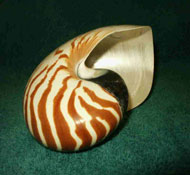 Magic Island Literary Works
Magic Island Literary Works by Rosemary and Larry Mild
| Home | Select Books From Spread | Authors | Contact us | Author Interviews | Monthly Blog |
Paco LeSoto, a dapper retired detective, and his new wife, Molly, a witty housekeeper/cook return as the same two endearing sleuths who enchanted you in Locks and Cream Cheese. But conspirators and bank robbers sour their honeymoon bus trip through Yellowstone National Park and the Grand Canyon aboard a Vermillion Tours luxury bus. The fates of 47 passengers are thrown together, not only for the wonderment of sights and their history, but for thievery, malice, and murder. For 14 days vicious schemes unfold—passions as spectacular as the scenery. |
 ISBN 978-0-9838597-3-4 Magic Island Literary Works (2nd Edition) |
E-mail us at: [email protected]
 |
Available now:
Amazon.com $12.95 paperback or |  |
Available now: Barnes & Noble $12.95 paperback or $2.98 eBook edition |
| Enjoy a sample chapter of Hot Grudge Sunday | |
Chapter 1
GREAT ESCAPADES
Day One, Thursday, September 10, 1981
The outrageous caper took place in suburban Denver, where a branch of the Alpine State Bank occupied a strip-mall space much like a narrow volume in library stacks. A drive-through alley passed between the bank and Mattress Heaven next door, leaving the appearance of a book borrowed. But certainly nothing was borrowed that morning.
Inside the bank, an elfin woman in her mid-thirties tapped out a personal letter on her IBM typewriter. Branch Manager Dora Ireland typed to look busy, to fill the glacially paced minutes, for no one had come through the front door in the past hour. She reached for her half-eaten sugared doughnut, took another bite, and washed it down with cold coffee from a mug bearing the bank logo.
The only other employee, a teller, accepted a check at the drive-through window. “And how would you like that, Mrs. Zales? In twenties?” asked Claire in her practiced, chatty tone.
Dora peeled the page from the typewriter to admire her letter. As she leaned back, her peripheral vision took in two newly arrived patrons waiting in the armchairs of the small lobby. A gray-haired woman with granny glasses hunched over her knitting. The needles clicked rapidly, producing a blue rectangle that grew as Dora watched. A man in army camouflage fatigues and matching peaked cap sat one chair apart from her. His upper body hid behind the Denver Post. Only his cap showed above the headlines.
Dora swiveled herself face front and called out, “Next, please.”
The woman tucked her knitting into a large tapestried tote bag and slid to the edge of her seat. Leaning forward, apparently fighting seventy-plus years, she pushed down on the arms of the chair and stood up. Her flowered house dress hung loosely around her body. She shuffled toward the desk.
“Ah, Mrs. Klimple, Alice Klimple, isn’t it?”
“Oh, my!” The woman lit up with a crinkled smile. “You’re a good one, you are. I got trouble even remembering my own name, let alone somebody else’s. And you only met me the one time.”
Dora rose to greet her. “Of course, I remember you. You rented a safe deposit box.”
“Got somethin’ to put in it today, dearie.”
“Certainly.” Pressing the hidden desk lock, Dora pulled out her bottom right-hand drawer and retrieved a ring of keys. “If you’ll just follow me, ma’am.”
Behind Dora’s desk stood an L-shaped partition decorated with branches of anodized gold and silver leaves. This divider shielded the vault entrance and its elephantine, armored door from general view. She led the patron around the divider to a wooden sign-in dais and extracted Mrs. Klimple’s card from an alphabetized file.
“I’ll need your signature first,” she said, holding out a pen.
Alice Klimple, in white cotton gloves, wrote her name slowly in a bold, yet shaky script. She returned the pen and held out her box key. “Number 286,” she said.
Dora stepped through the vault doorway to unlock and roll back the folding gate. On either side of her, the walls comprised hundreds of double-locked stainless steel doors in four sizes. A long fluorescent fixture bathed the vault in chalky light. On the rear wall of the vault, an internal door concealed similar boxes and drawers. These contained accounting records, loan contracts, legal documents, currency, and coin for the bank’s own use. Bank policy required this door to be kept locked at all times. But its combination proved so difficult that the managers frequently left it unlocked, sometimes even ajar.
Dora slid a small stool into position and stepped up on tiptoe to reach number 286. Taking the key from Alice, she turned it in the lock, along with a second key from her own ring.
“Something smells . . .” Dora gasped.
A hand appeared in front of Dora. A large gauze pad clamped across her mouth and nose. A pungent sensation invaded her nostrils. She tried to steady herself against the wall of steel boxes.
“Mmph! Mumph! Ehhhhhaah!”
Dora tried to peel the fingers away from her face, but they gripped like claws, pulling her slowly backward. The stool! Feeling herself tottering on the edge of it, she struggled to regain her balance . . . to find a handhold or a place to anchor her feet. She tried to turn and face her assailant, but the strength of a woman much younger than Alice held her in place. Soon the foreign sweet odor overtook her, and the manager melted into waiting arms that eased her to the carpet.
Mrs. Klimple moved quickly, using wide duct tape to bind and gag the limp figure on the floor. Alice’s long limbs stretched easily to retrieve the ring of keys from box 286. Her adrenaline surged, and she leaped over Dora’s slight body in her haste to get to the rear of the vault. The large combination door stood ajar. Alice had noticed it when the bank manager first led her into the vault. She swung the door wide to reveal the larger boxes and drawers reserved for the bank’s own use.
Alice felt the walls of the chamber pressing in on her like a time-driven vise as she fumbled to locate the individual drawer keys on the ring. Sweat trickled from her hairline down her neck. The vault’s commanding silence shattered each time a key turned in a lock—and again when she upended drawers on the carpeted floor. In less than five minutes, the contents of a dozen drawers lay spread before her. Selecting only packets of fifties and twenties, she stuffed as many as she could into the compartments of her tote. Methodically, she arranged her two skeins of yarn over the stash with the needles protruding.
Alice emerged from the vault doorway and rounded the partition. Over her shoulder, she called out pleasantly, “I certainly will. Sorry I made such a mess of things. You have a nice day now, dearie, y’ hear?” Alice resumed her bent, arthritic posture, shuffled through the bank, and continued out the double set of glass doors to the street.
The waiting man seated in the third chair glanced at his watch, folded his paper, and impatiently shook his head. He got up and left the bank, using his newspaper to push open one of the doors.
* * * *
At half past eleven, shortly after the disgruntled man had left, Claire finished with her last drive-up customer and turned to speak with her manager. How odd, the desk was still empty. She decided to check on Dora. As Claire passed the divider, she saw the half-open gate, but heard no conversation, no movement. A foreboding added weight to her step as she inched toward the front of the vault.
Claire’s eyes locked onto the rear wall. The inner safe door stood open. Among the rows of steel boxes she saw four gaping holes. She backed out of the doorway and stood frozen at the sign-in dais. Her shock melted into awareness only moments later, and she reached for the nearest silent panic alarm.
Still, neither signs nor sounds of life came from within. The frightful prospect of finding Dora dead kept her from entering the vault itself. But what if Dora were alive and needed her? Claire took a deep breath and slid the gate all the way back. The overturned drawers on the floor at the rear caught her attention first. She stepped inside. Her right foot bumped up against a soft mass. Dora’s body!
Screaming, Claire ran out of the vault to the lobby. Once there, common sense took charge. Recalling bank instructions to preserve the crime scene, she locked the front door and returned to the vault.
Her manager had recovered consciousness. As Claire began the painful task of pulling off the duct tape, Dora uttered frantic soprano whimpers. The adhesive left ugly red patches across her cheeks and lips, and she began sobbing in wordless spasms. The teller worked with a pair of scissors to cut the restraints from her manager’s wrists and ankles—a task made more difficult by Dora’s trembling.
Fists banged on the front door. The police had arrived.
* * * *
Several miles from the bank, Alice Klimple hopped off a city bus and strode briskly, shoulders erect, into the side street entrance of the Mile-High Sportsmen’s Inn. She paused before an easel to read its sign: WELCOME VERMILION TOURS. MEETING IN BRONCO AUDITORIUM AT 5 P.M. She smiled and headed straight to room 1010. Five minutes later, a man with a folded newspaper entered the hotel and proceeded to the same room.
Inside, they greeted one another with a warm hug and then, holding him at arm’s length, she said, “Well, LeRoy, honey, we did it again.”
“We shore did, Miz Milton,” he replied in an exaggerated Western drawl, “we shore did.” Laughing, he removed his sunglasses and cap.
Ruth Milton kicked off her sensible thick-heeled shoes and shed the white cotton gloves and print dress, then the granny glasses, the gray wig, breast padding, and support hose until she stood before him in just bra and panties. Her close-cropped hair, matted with moisture from the tightly fitted wig, looked a shade darker than her natural cocoa brown. She stood before the full-length mirror with the confidence of a woman who exercised regularly. Feeling her husband’s yearning eyes upon her, she reached into his partially open shirt and lightly teased the curls on his chest.
“First things first,” she whispered.
The dimple in his chin deepened as he smiled in agreement; they still had work to do. LeRoy continued to watch her as he stripped. His bushy hair had been gray since his late twenties. Now at forty-seven, his boxer shorts covered a thick middle, and his five-foot-eight frame was beginning to take on the look of an overfed terrier. He tossed his military outfit on the clothes pile.
The Miltons stuffed their disguises into a green plastic trash bag, just like the ones used by the hotel housekeeping staff. Turning the tapestried tote upside down, Ruth shook the contents out onto the bed. The packets of cash landed in thuds. She tossed the tote and the knitting into the garbage bag.
“A shame,” he said.
“What’s a shame?”
“Throwing all this good stuff away. And those roomy fatigues felt great.”
“Gotta get rid of it all, dearie.” She chuckled in her best Alice dialect. Afterward, her expression turned pensive as she thought about the Alpine State Bank. “You know, today—the exposed cash drawers? They left the same rear door open—the one we saw when we cased it last month. It’s the tiny combination dials on that model of lock. The settings have to be too precise. Too annoying. Just like at the bank in Ann Arbor. Those wonderful dummies.”
LeRoy unscrewed the cap on a large bottle of pancake syrup. He propped the garbage bag open and poured the maple topping in methodical swirls all over their abandoned disguises. The thick, sweet liquid seeped into the dress, the wig, the tote, the skein of blue yarn. “This’ll give the yellow jackets and ants a field day,” he said. “I’ll bet no one will nose into this bag.” He tossed the empty bottle on top of the clothes, gathered the garbage bag up into a compact bundle, and set it by the door.
Ruth sat cross-legged on the bed, stacking banded bills into piles of $1,000 each. Sixty-one piles across the bedspread: thirteen piles of fifties and the rest, twenties. Satisfied with the total, she redivided the bills into six nearly equal stacks and carefully fitted them into sturdy cardboard mailer boxes. Then she pulled off the peel-and-stick backings and smoothed on pre-addressed Flite-Express labels.
“What time is Flite-Ex coming?” he asked her.
“Between four and five. They told me that’s as close as they can figure. If the express pickup man doesn’t get here on time, you go to the five o’clock Vermilion Tours meeting. You take notes while I wait in the lobby for Flite-Ex.”
“I don't want to go to the meeting alone. I’m not good at that,” LeRoy whined. “You go to the meeting and I’ll wait for the guy.”
“If I agree to that, you’ll take a nap and miss him altogether. I know you.”
“So what?”
“So you want to stash the cash in your carry-on for the next fourteen days? On the whole damn bus tour?”
“Who’s gonna know?”
“Stop being so smart-assed with me. We’ll both wind up in jail.”
“Don’t you have any faith in me? What if I take my nap now?”
He lay down on the bed and tried to sleep. So many nights he’d just lain awake and fretted. That didn’t help his heart condition. His doctor called it mitral valve prolapse, an unpredictable pounding of timpani drums within the breast. The doctor told him it was nothing serious, but “try to avoid stress.” LeRoy wondered how the doc would rate bank heists on the stress scale. Half an hour later, the adrenaline still charged through his veins. He decided no sleep for the wicked.
“Let's go for a dip in the pool. It’ll help me unwind,” he said.
“You could use it, dear.”
After pulling on swim trunks and T-shirt, LeRoy picked up the garbage bag he’d left by the door, carried it around to the restaurant’s service area, and threw it in the dumpster, where it landed among dozens of other green plastic bags. By the time he returned to the room, she had donned a one-piece suit with high, French-cut legs that emphasized her muscular thighs. An amazing body, he thought, for a woman of forty-six.
Ruth closed their room door, rattled the handle to be sure it locked, and they headed down the hall to the pool. She gave his fanny an affectionate squeeze.